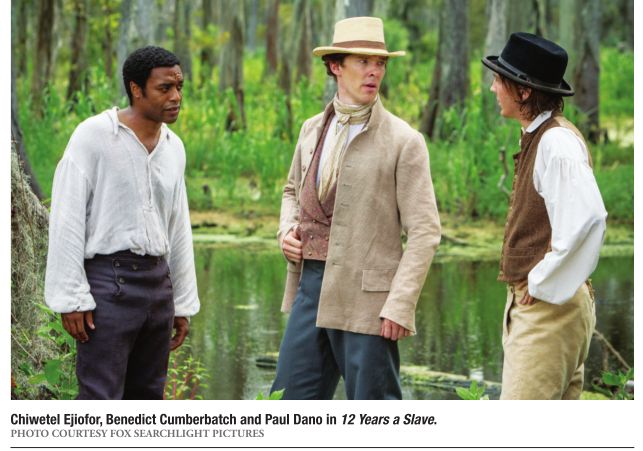
FILM | Chuck Koplinski
Perhaps it was inevitable that an outsider would be the one who would make the film that would portray America’s Peculiar Institution for the truly horrific practice that it was. We are too far removed to properly understand the practice of slavery as it existed in the United States. Time and comfort makes us soft and cynical and no amount of reading history or watching movies about this subject can ever hope to convey the magnitude of this atrocity. We often forget how lucky we are to be so far disconnected from this blight.
British director Steve McQueen knows the limitations and strengths of film as a medium, yet he powerfully wields the tools he has at his disposal in his latest 12 Years a Slave, an exhausting, vital examination of slavery through the eyes of one who lived through it. Adopted from the book by Solomon Northup, the movie is an examination of this practice through the unblinking eye of a filmmaker with no agenda. McQueen knows his responsibility is to shepherd this story to the screen and tell it with little embellishment or flare. He’s smart enough to realize that the power of the film lies in the story itself and modest enough not to call attention to himself as it plays out.
Northup, rendered by Chiwetel Ejiofor in a devastating performance, was a professional musician, with a wife and two children, who was abducted in 1841, taken to Louisiana and promptly sold into slavery. Heeding the advice of a lifelong servant, he keeps his identity to himself, knowing that to reveal it would lead to harsh treatment, hoping to remain inconspicuous until an opportunity to escape presents itself. During his 12 years of enslavement, he passes from one owner to the next, enduring physical and psychological abuse at every turn, somehow managing to keep his spirit alive along the way.
To be sure, the violence on display is graphic but never gratuitous. To present the atrocities at the film’s core any other way would be a disservice to its subjects. These moments are shocking but what I found to be most powerful were the quiet moments of indignation that Northup and his brethren are forced to endure. The sight of eight naked slaves washing from a single bucket in view of potential buyers, the way in which they are treated no better than horses when put up for sale and a horrific sequence in which Northup is left hanging from a tree, his feet barely touching the ground, over the course of an entire day and night while the work of the plantation goes on around him, prove to be the most powerful in the film. These moments powerfully display the callous indifference under which our society operated, accepting this practice either without question or a blind eye.
Slave is a shattering, devastating film that’s effective not simply because it portrays the atrocities inflicted upon slaves during this period but that it also shows how in allowing such a practice to exist, it ultimately affected the souls of those that lived within its midst. To be sure, at times it is nearly too brutal to watch, yet it should be required viewing for all.
Contact Chuck Koplinski at [email protected].